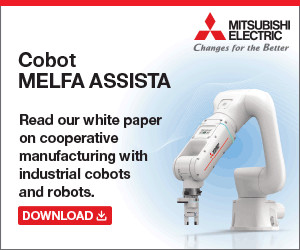Understanding Medical Anthropology
Medical anthropology examines cultural, social, and biological factors impacting health. It considers how beliefs, practices, and socioeconomic conditions shape health outcomes. By integrating cultural nuances, we better understand patient behaviors and systemic health disparities.
Anthropologists observe interpersonal interactions in healthcare settings. They study doctor-patient dynamics, communication methods, and care practices across cultures. This helps us identify barriers to effective treatment and develop inclusive health policies.
We also engage with indigenous medical knowledge. Traditional healing practices provide insights for holistic healthcare models. By respecting these traditions, we foster trust and cooperation between medical providers and diverse communities.
Ethical considerations underline our research. We focus on patient autonomy, consent, and cultural sensitivity. This ethical framework ensures robotics in healthcare respects individual rights and cultural contexts, paving the way for humane, effective medical systems.
Health Systems Research
Health systems research examines how healthcare services are delivered and how improvements can be made using interdisciplinary approaches, including medical anthropology and robotics.
Key Concepts and Objectives
We aim to understand healthcare delivery from a systemic perspective, identifying inefficiencies and optimizing resources. Key concepts in this field include health equity, access to care, and the integration of technology, such as robotics, to augment human capabilities. Objectives focus on improving patient outcomes and ensuring cultural competence in the deployment of advanced technologies.
Current Challenges
Significant challenges hinder the integration of robotics in health systems, including technological limitations, high costs, and varying acceptance levels among healthcare professionals and patients. Addressing these challenges requires extensive interdisciplinary research. Additionally, maintaining the balance between innovative robotic solutions and traditional care practices is crucial to ensure holistic benefits in diverse cultural settings.
The Intersection of Robotics and Healthcare
Healthcare is evolving rapidly with the integration of robotic technologies. Medical anthropology provides insights into how these technologies impact health outcomes and cultural practices.
Technological Innovations
Robotic innovations revolutionize healthcare delivery. Surgical robots perform precise operations, reducing recovery time. Telepresence robots enable remote consultations, expanding access to care in underserved areas. Rehabilitation robots assist in physical therapy, improving patient outcomes. These advancements enhance the efficacy and reach of healthcare services.
Ethical Considerations
Ethical issues arise with the deployment of robotics in healthcare. Patient autonomy must be respected, ensuring consent before robotic intervention. Data privacy is paramount as robots collect sensitive health information. Equitable access to robotic technologies is crucial to avoid disparities. Addressing these ethical concerns ensures respectful and fair healthcare delivery.
Role of Medical Anthropology in Health Systems
Medical anthropology plays an integral role in health systems. By examining sociocultural contexts, we can better understand the factors influencing health outcomes and the integration of technologies like robotics.
Cultural Insights
Medical anthropology provides crucial cultural insights that help tailor health interventions. We analyze beliefs, practices, and social structures to design more effective healthcare solutions. For instance, understanding community attitudes towards robotics in surgery can inform how we introduce such innovations. These insights ensure that robotic technologies are culturally accepted and effectively utilized.
Human-Centered Design
Human-centered design focuses on creating solutions that meet the needs of users. Medical anthropology aids in this by providing a deep understanding of user requirements and preferences. We engage with diverse patient groups to gather feedback on robotic technologies. This approach ensures that designs are intuitive, accessible, and respectful of cultural nuances. Consequently, health systems incorporate robots in ways that enhance patient satisfaction and outcomes.
Integrating Robotics in Health Systems
Robotics in health systems offers powerful tools to enhance healthcare delivery and patient outcomes. Leveraging our understanding of medical anthropology, we can ensure these innovations are culturally appropriate and ethically sound.
Case Studies
Several case studies highlight the effectiveness of robotics in diverse health systems. For example, a study in Japan introduced robotic caregivers that significantly reduced elderly patients’ sense of isolation, leading to better emotional well-being. In the United States, robotic surgical systems like the da Vinci have shown improved surgical precision and recovery times. These examples demonstrate the potential of robotics to address specific health challenges across different cultures and healthcare contexts.
Best Practices
Adopting best practices is crucial for integrating robotics into health systems. Conducting cultural impact assessments ensures that robotic solutions align with local values and practices. Involving multidisciplinary teams, including medical anthropologists, guarantees the technology meets community needs. Additionally, prioritizing patient consent and data privacy fosters trust and ethical integrity. Following these best practices helps ensure that robotic technologies enhance healthcare delivery while respecting cultural and ethical norms.
Future Directions
Exploring future directions unveils exciting advancements in robotics within healthcare. The integration’s cultural considerations promise to shape the evolution of patient care.
Emerging Trends
Robotics in healthcare sees rapid advances. Wearable medical robots offer real-time monitoring and personalized treatment. Automated systems in elderly care enhance autonomy and improve quality of life. AI integration in robotics enables predictive analytics, identifying potential health issues before they become critical. Telemedicine robots facilitate remote consultations, bridging gaps between patients and healthcare providers. Innovations in surgical robots promise increased precision, reducing recovery times. These trends suggest a future where robotics increasingly supports personalized, efficient, and effective care delivery.
Collaborative Opportunities
Cross-disciplinary collaboration remains vital for successful integration of robotics. Partnerships between medical anthropologists and engineers ensure culturally appropriate technology. Collaborative research projects enable sharing of data and best practices across regions, enhancing global healthcare. Involving sociologists, ethicists, and healthcare providers fosters a holistic approach to technology design and implementation. Joint training programs in medical anthropology and robotics prepare professionals for emerging challenges. Public and private sector alliances can drive investment and innovation, accelerating development. Through collaboration, we can create solutions that are not only technologically advanced but also culturally and ethically sound.
Conclusion
Medical anthropology offers invaluable insights into the integration of robotics in healthcare. By addressing cultural and ethical considerations, we can enhance patient outcomes and ensure technology aligns with local values. The collaboration between medical anthropologists and engineers is crucial for developing innovative and culturally appropriate solutions. As we look to the future, the role of medical anthropology will only grow in importance, guiding the ethical deployment of advanced robotics in diverse healthcare settings. Our commitment to cross-disciplinary teamwork and continuous learning will drive the successful and equitable adoption of these groundbreaking technologies.





